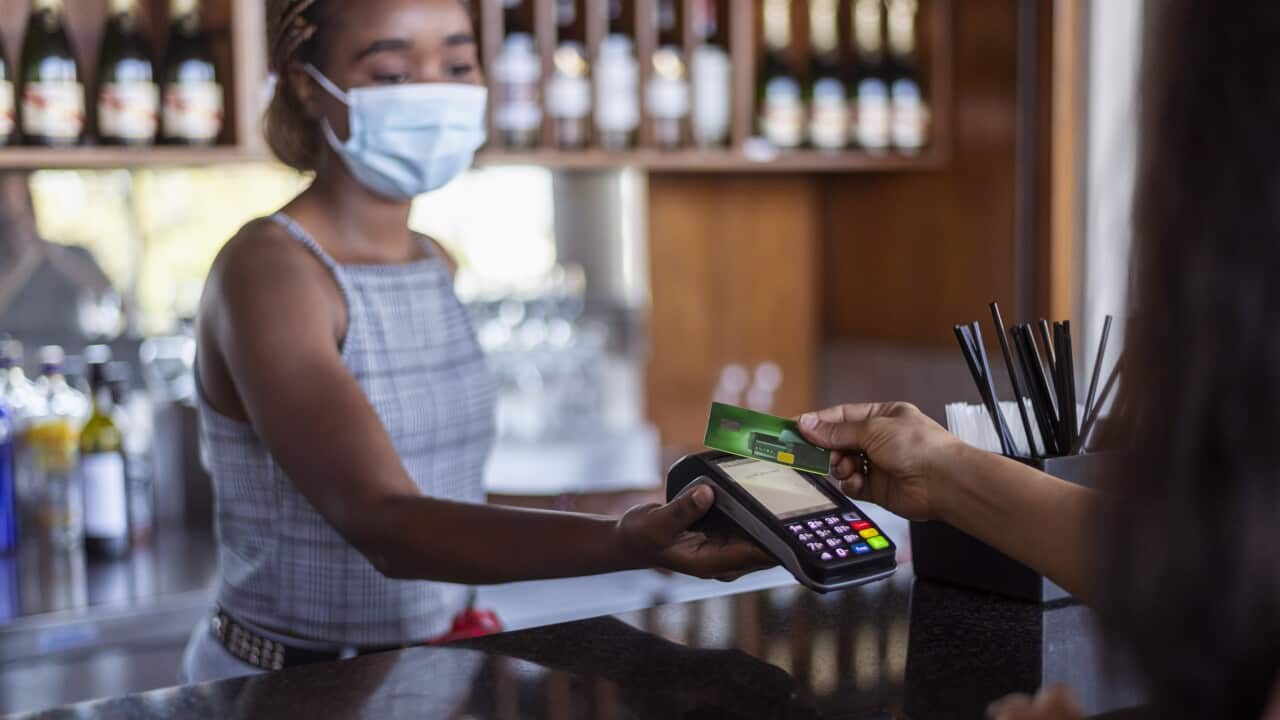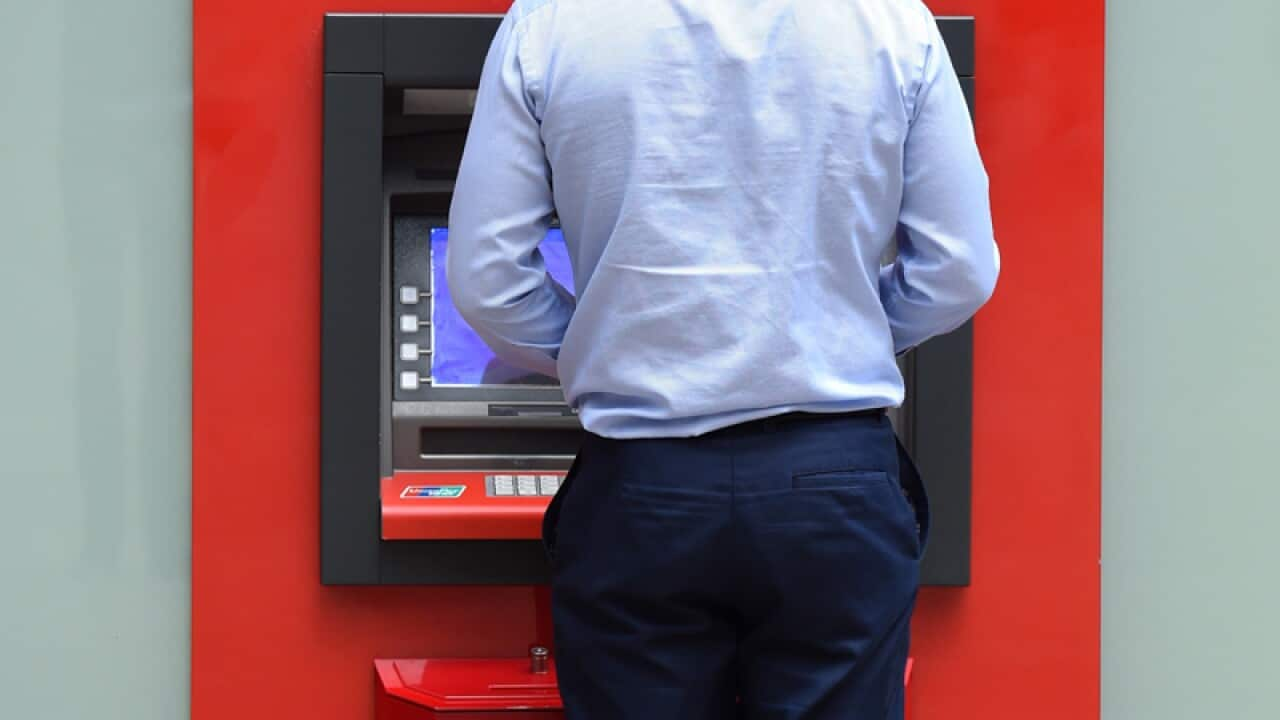Key Points
- Cash is estimated as making up 6 per cent of the value of all transactions in Australia.
- Sweden is among the countries where cash is used the least.
- China may move away from using cash and go completely digital with its currency.
What was the last thing you paid for with cash? Chances are most of your purchases are done digitally.
Most transactions in Australia are carried out electronically using tools such as tap and go, bank transfer, direct debit or credit facilities.
With cash becoming less common in everyday life, it may not be too far into the future that the question is asked if it's worth keeping cash or switching to an all-digital currency.
What’s the situation in Australia?
The total value of cash payments made in Australia represented just 6 per cent of all point-of-sale transactions in 2022, according to financial technology company FIS global.
UNSW Professor of Economics Richard Holden said that number was likely to have continued to shrink.

UNSW Professor of Economics Richard Holden sees potential in Australia becoming a cashless society. Source: Supplied / Aran Anderson
"It's become harder to get cash out and banks are literally taking ATMs out of service, so ," Professor Holden said.
"The other thing that's been really important is the development of the New Payments Platform (NPP) which was developed by the RBA (Reserve Bank of Australia) in 2018, this is what you might know as Osko or PayID."
The NPP allows for instantaneous 24/7 peer-to-peer electronic money transfers.
Why countries are keen to go cashless
Sweden is close to being cashless.
Researchers previously predicted March 2023 as the date at which accepting cash would no longer be profitable for merchants in the country.
Professor Holden said cash equated to about 2 per cent of the value of transactions in Sweden with most Swedes now using the money transfer app Swish.
"They went from having cash transactions being a little under 40 per cent in 2010, to about 8 per cent, in 2020," he said.
"They've been really phasing it out quite aggressively."
He said there were a number of reasons countries may be keen to go cashless.
Professor Holden said from a business perspective, doing away with cash reduced risk from theft and holdups and therefore could have a flow-on effect on business insurance premiums but also reduced workload.
"Somebody's got to count it up, bundle it up, take it to night drop safe and all this kind of stuff, that's a bunch of staff time, it's a hassle and it's not very safe," Professor Holden said.
"It's good for consumers and it's good for business and it really makes sense for a central bank to say we're going to help coordinate so that they're just getting rid of this stuff. "
Professor Holden said switching all payments to digital also meant there was a paper trail for transactions.

Sweden is one of the countries that relies the least on the use of cash. Source: Getty / olaser
The Australian Tax Office describes the use of cash to deliberately hide income to avoid paying tax or superannuation as the cash or shadow economy.
While it had appeared as if digital currency would replace cash completely in Sweden, the country's central bank may be putting the brakes on the idea of total cashlessness.
The and while it is yet to release its full findings, its Deputy Governor has said it should be possible to buy vital goods using cash.
China's move to digital currency
While China's reliance on cash in 2022 was slightly higher than Australia's, sitting at 8 per cent of all point of sale transactions, Professor Holden believed China could switch to digital currency before Australia.
"China is basically moving towards a digital currency, so there just won't ever be physical currency in China and it might only be a few years," he said.
According to , the COVID-19 pandemic and high internet usage had contributed to increased usage of mobile payment methods in the country.
The Chinese government has also been pushing for the use of digital currency, with its central bank creating what is known as digital yuan.
Professor Holden said the usage of digital currency in China prompted "legitimate concerns" about the government knowing what people were spending their money on.
"But there's a totally different context of China than there is in Australia," he said, pointing to China's social credit system which relies heavily on digital surveillance.
"I think those concerns are vastly more important in a country like China than they are in a country like Australia or the United States.
"I think we're pretty good in Australia at making sure the administrative agencies aren't able to misuse our private information."

The payment of wages to some Chinese workers in digital yuan has raised concerns about privacy. Source: Getty / Bobby Brill
Concerns about going cashless
Professor Holden said while those opposed to moving to a cashless society often referred to the most vulnerable in society being disadvantaged he believed once systems were in place, a cashless society would not disadvantage anyone.
"There is a real question in a place like the United States, where there are a bunch of low socio-economic status people who actually don't have a bank account and that would be a real concern. But the reality is, there's sort of nobody in Australia who's unbanked so, that dimension of vulnerability in Australia isn't really an issue."
He admitted those who need to be taken into account as Australia moves away from the use of cash were some elderly people who do not use a lot of technology.
"Older Australians, who may not be familiar with technology and have less facility with technology, who still want to and need to transact and that's an important dimension to be concerned about," Professor Holden said.
Looking to the future of cash in Australia
Professor Holden said a switch to digital currency alone could net Australia a big increase in tax revenue.
"Whether it's babysitters, nannies, tradies, even people buying cars and things like that, it's this sort of sort of cash-only transaction recorded off the books kind of stuff that leads to a real loss of tax revenue," he said.
"That might be in the order of six to eight billion dollars in tax revenue."
Professor Holden suggested a move to digital currency in Australia could be a phased transition where the larger bank notes were removed first, with others following over a three-year period.
"Give people time to adjust, put in place plans for some of those vulnerable seniors and make sure everyone's got pay ID and things like that."
Professor Holden said if there was not an appetite for reform towards digital currency in the next few years, he believed Australia would be functionally cashless by 2030, reaching the same stage as Sweden is now.











